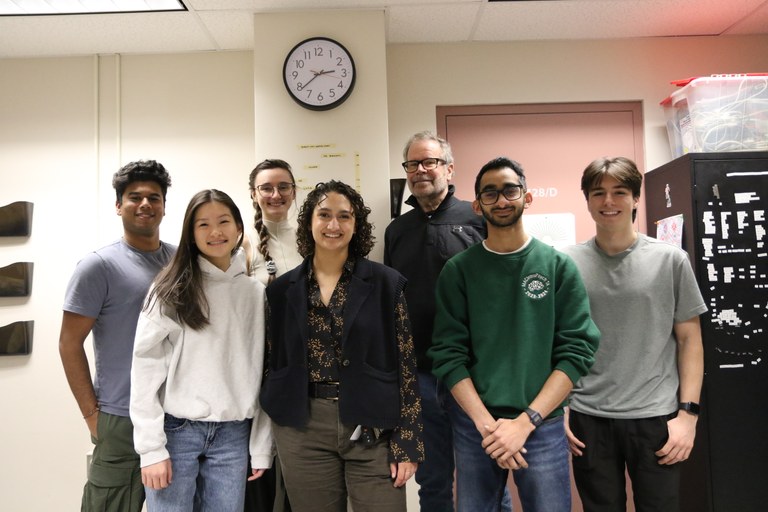The VCN Lab Team
We welcome applications from excellent students interested in cognitive neuroscience and visual perception. Students in the lab work on problems ranging from low-level vision through visual cognition. All students have the opportunity to work on a variety of projects, in a collaborative atmosphere, using state-of-the-art equipment for psychophysical experiments, eye tracking, and neuroimaging studies. 
Undergraduate students can apply to work in the lab either for credit (e.g., 2QQ3, 3QQ3, 4QQ3, 4D09), through the NSERC Summer Research Fellowship Programme, or on a volunteer basis. We have an outstanding placement record for our undergraduates in graduate and professional schools.
Graduate students can apply to work in the VCNLab through several different programs. Most of our students have come through the Department of Psychology, Neuroscience & Behaviour at McMaster University; students applying through PN&B should choose either the Perception & Cognition or Behavioural Neuroscience research areas when applying. Students can now also apply through one of McMaster's two new interdisciplinary graduate programs: Neuroscience, and the School of Computational Engineering and Science. It is always useful to let us know if you are applying through any of these programs so we can be on the lookout for your application. We welcome both Canadian and International students, and all students receive full funding and generous support to attend workshops, conferences, etc. Graduate students in the VCNLab are eligible to be part of one of two interdisiplinary CIHR training programs (one in aging and communication and the other in vision health). We encourage graduate students to work collaboratively, and we often co-supervise our students. Students with strong backgrounds in Psychology, Cognitive Science, Neuroscience, Computer Science, Engineering, Mathematics or Physics are especially encouraged to apply.
Post-doctoral applicants should contact Patrick Bennett or Allison Sekuler directly to discuss the many different funding possibilities. PDFs may be eligible to be part of one of two interdisiplinary CIHR training programs (one in aging and communication and the other in vision health).
Document Actions
![[McMaster logo]](mcmaster_logo.jpg)